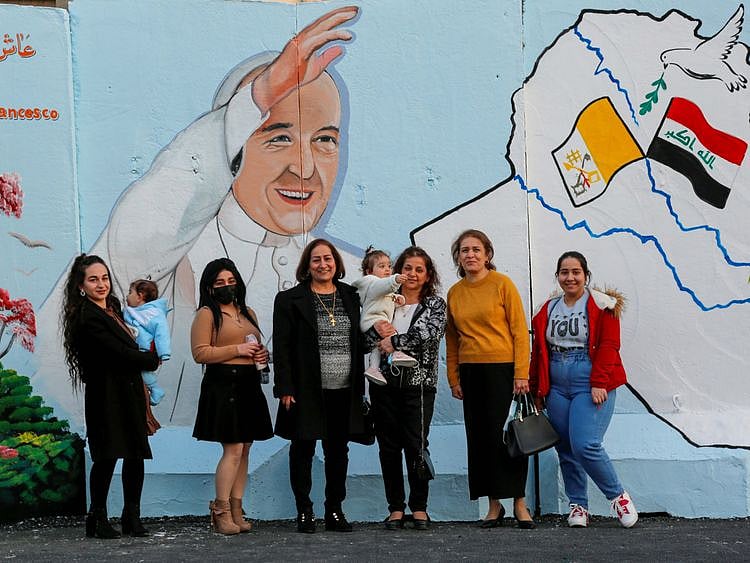Pope in Iraq: a historic visit that sends the right message
Head of Catholic church to reassure all those violently persecuted by war, displacement

Two years after he made history by visiting the UAE, Pope Francis will be landing on Friday in Iraq, home for a sizeable Arab Christian community, a visit that carries more than a few important messages.
On 3 February 2019, the pope arrived in the UAE, the first visit ever by the head of the Catholic Church to the Arabian Peninsula. Similarly, his visit to Iraq will be the first ever by a pontiff to the Arab country, widely perceived as an act of solidarity with an ancient but unfortunately dwindling Christian community and continuation of his outreach to Muslims, which he began shortly after he took over the Papacy in 2013.
During his visit to the UAE, which he described “historic,” the pope and Dr. Ahmed Al Tayeb, the Grand Imam of Al Azhar, signed the landmark Human Fraternity Document, a UAE initiative which put forward a blueprint for the future that “calls on people across the globe to unite to bring about interfaith harmony and spread the message of peace.”
Pope Francis said the UAE leaders invited him to the country because they “wanted me to join them in finding paths to shared prosperity for both the Islamic and Christian worlds. We are people of one God and we have a common future.”
This is the message Pope Francis is taking to Iraq as he lands in Baghdad on Friday. And it is a message that Iraq desperately needs, following years of endless wars, displacement, and agony.
Iraq is home to several ancient Christian communities, who now number an estimated 200,000 to 300,000 from the 1.5 million who lived in the country before the 2003 US invasion. There are 14 officially recognised Christian sects in Iraq, mainly the Chaldeans, the Syriacs, the Assyrians and the Armenians.
A call to Arab Christians
Some of these communities have endured most of the terror attacks in Iraq between 2006 and 2017 and tens of thousands fled to safety in the West and other countries in the region. The Pope is expected to join Iraq’s leaders in calling on the country’s Christians, as well as other Arab Christians in the region, to stay in their homelands.
That is a critical message because all agree that the departure of Christians and other minorities only makes this region poorer culturally and socially and less tolerant.
Another important meeting Pope Francis is scheduled to hold will be with Ayatollah Ali Al Sistani, the influential leader of Iraq’s Shiite Muslims, in Najaf on Saturday. This is a symbolic gesture that will resonate big with Iraqis and amplify the message of peace and coexistence the pontiff is carrying in his landmark visit.
Moreover, the visit is taking place amid the pandemic, with Iraq’s infection increasingly on the rise. That led many to call for postponing. However, the Pope, recognises that his trip to the birthplace of Abraham and his message are perhaps more relevant in the current circumstances that unites us all in the fight against an unprecedented threat.
Sign up for the Daily Briefing
Get the latest news and updates straight to your inbox
Network Links
GN StoreDownload our app
© Al Nisr Publishing LLC 2026. All rights reserved.